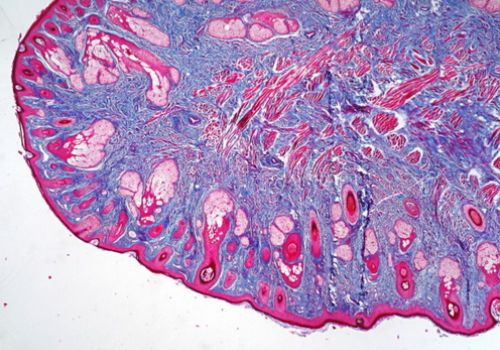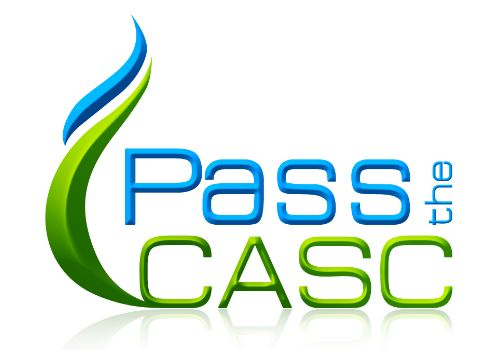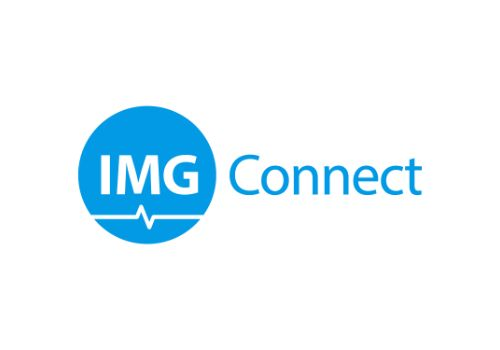Search IMG Library
YOUR SPECIALISM- See all
- Gastroenterology
- Microbiology
- Urology
- Rheumatology
- Stroke Medicine
- Ophthalmology
- Oncology
- Neurology
- Histopathology
- Haematology
- ENT Surgery
- Acute Medicine
- Anaesthetics
- Respiratory
- Dermatology
- Geriatrics
- Radiology
- Surgery
- Paediatrics
- Psychiatry
- Emergency Medicine
- Critical Care & ICU
- General Medicine
70 blogs found

Where Can I Take the MRCPsych CASC Exam? A Complete Guide for International Psychiatrists
Where Can I Take the MRCPsych CASC Exam? A Complete Guide for International Psychiatrists
If you're an international psychiatrist preparing for the MRCPsych CASC exam, one of your first questions might be, “Where can I take the CASC exam?” With several international centres now available, candidates have greater flexibility than ever before. This guide will explain the current exam centres, the application process, and key details to help you on your path to UK specialist registration.
What is the MRCPsych CASC Exam?
The MRCPsych CASC (Clinical Assessment of Skills and Competencies) exam is the final stage in the Membership of the Royal College of Psychiatrists examination series. It is a practical assessment designed to test candidates on their clinical and communication skills across 16 stations, where they interact with patients (played by actors) in simulated clinical scenarios.
Before you can sit the CASC exam, you need to:
Have passed both MRCPsych Paper A and Paper B.
Have at least 24 months of post-foundation clinical experience in psychiatry.
For further eligibility criteria and full details on how to apply, visit the RCPsych’s official exam application page.
Where Can I Take the MRCPsych CASC Exam?
The MRCPsych CASC exam is held at three key locations worldwide. Candidates can choose the centre that best suits their location and travel needs:
United Kingdom (Sheffield)
The primary CASC exam centre is located in Sheffield, UK. Most UK-based candidates and many international candidates choose this centre. The exam is conducted twice a year, typically in January and September.
Singapore
For candidates based in Asia, Singapore offers a convenient location. This centre runs the CASC exam once annually in June.
Doha, Qatar
The newest centre is located in Doha, providing a more accessible option for candidates in the Middle East. The Doha location holds the exam once annually in November.
These three locations ensure the CASC exam is accessible to international psychiatrists, providing multiple options to suit different geographical regions.
How to Apply for the MRCPsych CASC Exam
Applications for the CASC exam must be submitted through the RCPsych’s online application portal. It’s crucial to keep an eye on the key dates and deadlines for each exam sitting. You can find the full schedule of exam dates, application deadlines, and other important updates on the RCPsych Exam News and Updates page.
Key points to remember when applying:
Be sure to apply early, as places at each centre can fill up quickly.
Double-check your eligibility criteria to avoid any delays in processing your application.
Make sure all documents (e.g., proof of experience, qualifications) are ready and uploaded during the application process.
Recent Updates on CASC Exam Centres and Dates
As of 2025, the CASC exam centres are located in the UK, Singapore, and Doha. This international spread reflects the growing demand for more accessible exam locations for international psychiatrists.
Additionally, the RCPsych regularly updates candidates on any changes in exam schedules, policies, or application processes. Candidates are encouraged to check the RCPsych exam news page for any updates, including the latest on registration dates, exam format, and more.
FAQs About the MRCPsych CASC Exam for International Candidates
1. Can I take the MRCPsych CASC exam outside of the UK?
Yes, you can take the CASC exam in Singapore or Doha, Qatar, in addition to the UK. All centres follow the same schedule, offering exams in January and September.
2. When is the CASC exam held?
The CASC exam is held several times a year, in January, June, September and November.
3. How do I choose my CASC exam centre?
You can choose the exam centre that is most convenient for you (Sheffield, Singapore, or Doha) when you apply for the exam through the RCPsych application portal.
4. How do I prepare for the MRCPsych CASC exam?
Preparation involves practice with clinical scenarios, focusing on communication, diagnosis, and patient management skills. Consider attending mock exams and study groups specifically tailored to the CASC format, and join our online IMG Psychaitrist group for free courses and resources. You will join a group of UK and international psyhciatrists working towards MRCPsych.
Final Thoughts
The MRCPsych CASC exam is a significant milestone for international psychiatrists looking to gain UK specialist registration. With exam centres in the UK, Singapore, and Doha, it’s now more convenient for overseas candidates to take this essential step. Be sure to regularly check the RCPsych exam news page for updates and ensure all your documents and requirements are in order before applying.

Dr. Misra's Top 10 Tips to Pass the FRCR 2B Exam
Passing the FRCR Clinical Oncology 2B exam is a significant milestone for any clinical oncologist, especially for international doctors aiming to secure NHS jobs in the UK. This challenging exam is crucial for progressing in your medical career and obtaining roles within the NHS. Our own IMG Oncology faculty, Dr. Rahul Misra, an experienced UK-based clinical oncologist, shares his top ten tips to help you succeed. With the exam coming up, these tips will enhance your preparation, manage exam stress, and ensure you perform at your best on exam day.
1. Understand the Exam Structure
Familiarize yourself with the exam format, which includes a written component, rapid reporting, and the oral component. Each section tests different skills, so understanding the structure will help you tailor your preparation accordingly. Utilize resources such as the RCR Guidance Notes to get detailed insights.
2. Develop a Study Plan
Creating a structured study plan is crucial. Allocate specific times for studying different topics, and ensure you cover all aspects of the syllabus. Include time for revision and practice exams. Consistency and regular review sessions will reinforce your knowledge and boost your confidence.
3. Practice with Past Papers
Past papers are invaluable. They provide insight into the types of questions asked and help you familiarize yourself with the exam's pacing. Aim to complete several past papers under exam conditions to improve your time management and identify areas where you need further study.
4. Join a Study Group
Collaborating with peers can enhance your learning experience. Study groups provide a platform to discuss difficult topics, share resources, and practice oral exams. Peer feedback can be incredibly beneficial in refining your answers and presentation skills. If you're not already please join the IMG Oncology Facebook group, from there you can register for all upcoming webinars and events!
5. Use Quality Study Resources
Ensure you use high-quality and up-to-date study materials. Resources like Radiology Cafe and Cafe Roentgen offer excellent guides and reading lists. These resources provide comprehensive coverage of the exam topics and often include tips from candidates who have successfully passed the exam.
6. Master Rapid Reporting
The rapid reporting component requires quick and accurate interpretation of radiographs. Practice with timed sessions using a variety of cases to improve your speed and accuracy. Resources like RadioGyan offer excellent tips and case studies for rapid reporting practice.
7. Refine Your Oral Exam Skills
The oral component can be daunting, but practice is key. Engage in mock orals with colleagues or mentors to simulate the exam environment. Focus on clear, concise communication, and be prepared to justify your clinical decisions. This will help you build confidence and improve your performance under pressure.
8. Stay Updated on Current Guidelines
Clinical guidelines and standards of care can evolve, so ensure you are up-to-date with the latest practices. Regularly review journals, attend relevant seminars, and participate in continuous professional development activities to stay informed.
9. Manage Your Stress
Exam preparation can be stressful, so it's essential to manage your stress effectively. Incorporate regular breaks, exercise, and relaxation techniques into your routine. Adequate sleep is crucial for optimal cognitive function, so prioritize your well-being throughout your study period.
10. Simulate the Exam Day
Familiarize yourself with the exam day logistics, such as the venue, timing, and required documentation. Simulate the exam day conditions a few times to get used to the environment and reduce anxiety. Being well-prepared logistically will help you focus entirely on the exam itself.
Final Thoughts
Passing the FRCR Clinical Oncology 2B requires dedication, strategic preparation, and a calm mindset. Utilize the tips and resources provided to enhance your study efforts. Remember, consistent practice and a well-rounded understanding of clinical oncology principles will serve you well in the exam and your future career.
Good luck!

Understanding the RCPath Points System for Histopathology in the NHS
Many overseas pathologists wonder how UK reporting patterns are structured within the NHS. One of the key benefits of working as a histopathologist in the NHS is the use of the RCPath points system. But what does this actually mean?
What is the RCPath Points System?
The RCPath points system is used by the Royal College of Pathologists (RCPath) in the UK to measure the workload of pathologists. The system assigns points to different activities based on their complexity and the time required to complete them. This helps in workload planning and ensures that tasks are distributed fairly among pathologists. You can read more about the points system via the RCPath publicised document here.
Here's a summary of some key features, focusing on histopathology, cytology, and autopsy practice. You can also find the most recent updates on this via the RCPath website here.
1 - 5 Minutes
1 Point
6 - 10 Minutes
2 Points
11 - 20 Minutes
3 Points
21 - 30 Minutes
5 Points
31 - 50 Minutes
8 Points
> 50 Minutes
12 Points
Points Allocation:
Histopathology: Different types of specimens are assigned specific points based on the complexity of the examination. For example, simple biopsies might be assigned fewer points, while complex surgical resections would have higher points.
Cytopathology: Points are allocated based on the type of cytology specimen, such as fine needle aspirations or exfoliative cytology.
Post-Mortem Examinations: Autopsies are assigned points depending on the type (e.g., routine or complex cases).
Workload Management:
Daily/Weekly Limits: The system sets recommended daily or weekly points totals to prevent overworking and ensure manageable workloads.
Job Planning: Pathologists' job plans are often based on achieving a certain number of points per session or week, balancing clinical duties with other responsibilities like teaching or research.
Fair Distribution:
The system aims to distribute cases evenly among pathologists by assigning points based on workload rather than just the number of cases. This helps maintain fairness within pathology departments.
Adjustments:
Complex Cases: Cases requiring additional time or expertise, such as those needing second opinions or further testing, may have adjusted points.
Special Circumstances: Adjustments can also be made for special circumstances, such as when pathologists are in training or dealing with new techniques.
What is the Purpose and Benefit of the RCPath Points System?
Ultimately, every decision in the NHS is made with the aim of improving patient experience and care—a central theme of all work within the NHS.
The RCPath points system benefits patient outcomes in the following ways:
Standardisation of Reports and Quality: Provides a standardised way to measure and compare workloads across different institutions and pathologists.
Efficiency of Reporting and Staff Workload: Helps in resource allocation, ensuring that pathologists are not overburdened and that the quality of work is maintained.
Transparency Among Colleagues: Offers transparency in workload expectations and aids in discussions around job planning and workload distribution.
The RCPath points system is a structured approach to ensuring that pathologists’ workloads are balanced, manageable, and fair, contributing to better patient care and job satisfaction.
If you would like to read more about how staffing and workload for pathology departments are assessed and managed by the Royal College, an updated version of the RCPath Best Practice Recommendations is due for publication soon.
Your IMG Consultant is happy to assist with any negotiations related to your job plan to ensure your experience is taken into account.
For more information on NHS doctor benefits and pay arrangements in the UK, take a look at our IMG Resources library.

Dr. Debdeep Dey’s Top 10 Tips for Passing the FRCPath Exam
Passing the FRCPath Part 2 exam is a significant milestone in a histopathologist’s career, marking the transition to consultant-level practice in the UK. We are proud to introduce our expert faculty member, Dr Debdeep Dey, FRCPath, who brings extensive experience and a passion for teaching to our programme.
Here are Dr Debdeep Dey’s top 10 tips to help you prepare effectively and pass the FRCPath Part 2 exam:
1. Understand the Exam Structure
Familiarise yourself with the format of the FRCPath Part 2 exam, which includes long cases, short cases, frozen sections, and a viva (oral examination). Understanding the structure and expectations for each component will help you tailor your preparation accordingly.
2. Create a Study Plan
Develop a detailed study plan that covers all aspects of the exam. Allocate time for reviewing textbooks, practising with histopathology slides, and engaging in mock exams. Consistency is key, so ensure your study plan is realistic and follows a regular schedule.
3. Use a Variety of Resources
Diversify your study materials. Utilise textbooks, online resources, and practice slide sets. Resources like the Royal College of Pathologists website, PathSoc, and IMG Connect offer valuable guidance and preparatory materials.
4. Join a Study Group
Consider joining a study group or finding a study partner. Discussing cases and sharing insights with peers can provide new perspectives and enhance your understanding. Study groups also offer mutual support and motivation. If you haven't already, join the IMG Histopathology group to find a study partner and stay updated on our free educational webinars!
5. Practise, Practise, Practise
Hands-on practice with histopathology slides is crucial. Review as many cases as possible, covering a wide range of pathologies. Practise interpreting slides under timed conditions to simulate the exam environment and improve your speed and accuracy.
6. Attend Courses and Workshops
Participate in courses and workshops tailored to the FRCPath Part 2 exam. These courses provide invaluable insights into exam techniques, common pitfalls, and key focus areas. They also offer opportunities to interact with experienced pathologists and examiners. Join the IMG Histopathology group to join our free educational webinars!
7. Focus on High-Yield Topics
Identify and prioritise high-yield topics frequently tested in the exam. Common areas include neoplastic and non-neoplastic pathology, dermatopathology, gastrointestinal pathology, and gynaecological pathology. Ensure you have a thorough understanding of these topics.
8. Develop Your Diagnostic Skills
Sharpen your diagnostic skills by practising with unknown cases. Aim to provide comprehensive differential diagnoses and consider the clinical context. Focus on formulating concise, accurate reports that demonstrate your ability to manage real-life diagnostic challenges.
9. Prepare for the Viva
The viva component assesses your ability to discuss cases, defend your diagnoses, and demonstrate your clinical reasoning. Practise articulating your thought process clearly and confidently. Engage in mock vivas with colleagues or mentors to gain experience and receive constructive feedback.
10. Take Care of Yourself
Ensure you maintain a healthy balance between study and personal well-being. Rest, nutrition, and exercise are essential for optimal cognitive function and stress management. Avoid burnout by scheduling regular breaks and leisure activities.
Conclusion
Passing the FRCPath Part 2 exam requires dedication, thorough preparation, and a strategic approach. By following these tips and leveraging available resources, you can enhance your readiness and increase your chances of success. Persistence and perseverance are key, and each step brings you closer to becoming a consultant histopathologist.
Best of luck with your preparation, from all at IMG Connect!

Top Tips from Dr. Barker and Dr. Ilyas for Excelling in MRCP PACES
Preparing for the MRCP PACES can be a daunting task, but with the right strategy and mindset, success is within reach. We are proud to introduce our expert faculty, Dr. Joseph Barker, MRCP, and Dr. Nabil Ilyas, MRCP, who bring extensive experience and a passion for teaching to our program. Having both passed PACES, they have compiled their top tips to help you excel.
1. Understand the Exam Format
The MRCP PACES exam consists of five stations, each designed to test different clinical skills. Familiarise yourself with the structure and timing of each station to manage your time effectively during the exam. Each station is 20 minutes with 5-minute intervals in between.
The stations include:
Station 1: Respiratory and Communication (10 minute, 10 minute)
Station 2: Consultation (15 minutes with 5 minute QA with examiner)
Station 3: Cardiovascular and Neurological System Examination (10 minute, 10 minute)
Station 4: Abdominal and Communication (10 minute, 10 minute)
Station 5: Consultation (15 minutes with 5 minute QA with examiner)
2. Practice Clinical Examinations
Thoroughly Practice as you’re examined. Regularly practice clinical examinations on colleagues, friends, patients, mum & dad or even a pillow. Pay special attention to performing systematic examinations and articulating your findings clearly. This will help you build muscle memory and fluency in your exam technique. Make sure to practice in front of people who make you nervous, that way you get used to performing under pressure.
3. Develop a Structured Approach
Create a consistent and structured approach for each clinical examination. This ensures that you cover all necessary aspects and don't miss key points under pressure. WIPE – Wash your hands, Introduce yourself, Permission, Expose … then inspection, palpation, percussion, and auscultation – look how simple the examination stations are! Same for the history – presenting complaint, patient concern*, history of presenting complaint … past medical history… you know the rest. *Bring up the patient's concerns early so you can shape the consultation around them as people.
4. Refine Your Communication Skills
Effective communication is vital for ALL stations especially consultation and communication stations. Practice explaining medical conditions, treatment options, managing complaints and delivering bad news with empathy and clarity. Seek feedback from peers or mentors to improve your communication style.
5. Master the Art of Differential Diagnosis
Develop a strong foundation in formulating differential diagnoses. There is no substitute for being out on the wards and this really is where the examiner can get the measure of a candidate. For each clinical scenario you encounter, practice thinking through possible diagnoses and justifying your reasoning in a STRUCTURED manner- there is a theme here. Practice out loud, we promise it will help.
6. How to investigate and manage patients
You will have passed MRCP Part 1 and 2. You have the knowledge but PACES tests decision making; you need to know emergency cases thoroughly and have a logical and STRUCTURED approach to care. # Investigations start with bedside investigations, then bloods, then imaging, then special tests. For management patient care is ALWAYS “dictated by degree of severity and patient choice”, whilst management options more often than not “include conservative, medical and surgical options” - these stock phrases buy you time to think of what goes after. Use them.
7. Simulate Exam Conditions
Recreate exam conditions by timing your practice sessions and simulating the exam environment. Nominate an examiner and don’t break character until time is up, however excruciating the line of questioning. This will help you get accustomed to the time constraints and pressure of the actual exam. Consider joining a study group or attending mock exam sessions for added realism. IMG Connect Medicine Facebook group can help you find study partners.
8. Focus on Common* Conditions (*common = common for PACES)
While preparing, prioritise common and high-yield conditions that are frequently tested in PACES. Things that are stable in outpatient but have excellent signs, like dialysis, transplant and congenital heart disease. Ensure you can confidently assess, diagnose, and manage conditions such as COPD, heart failure, stroke, and diabetes. Don’t forget that if a patient doesn’t show up the examiners will go and fish someone from the wards. Keep an eye out for cannulas, wrist bands and drains which can be a clue as to their inpatient status.
9. Seek Feedback and Reflect
Ask anyone that will watch you to give you feedback. Your final exam technique will be the sum of the best titbits from every one of these people, whether they are supervisors, mentors, peers or family. Reflect on your performance, identify areas for improvement, and adjust your preparation strategy accordingly. Continuous feedback and self-reflection are key to ongoing improvement.
10. Balance
Medicine is a marathon, not a sprint. The PACES process, including the months of build-up, is mentally and physically demanding, requiring you to stay focused on your goal for a long time. We all thought PACES was impossible at some point… and now we are teaching it. You will get there but make sure to maintain good health by getting adequate rest, exercise, nutrition and to have fun in the build up to reduce stress and improve stamina.
11. Clinical consultation (CC) station:
Answering patient concerns carries more marks than one can imagine. It is the make or break of the CC station. PLEASE DO NOT wait for the “bell at 2 mins remaining” but start to address patient concerns maybe with 5 mins left on the clock as the patient/surrogate always have follow-up concerns. Many candidates feel that they’ve got the “case” and they feel confident about the station. But they don’t realize that this cardinal mistake has happened leading them to score less than they would have liked.
12. Examination Station
Practice, Practice, Practice on presenting your examination findings in under 2 minutes in an orderly fashion. Everyone knows how to examine an abdomen, everyone knows ascites or a hepatomegaly or what ballot-able kidneys feel like but only a few know ‘how to put it all together’ and present it in a very systematic and neat manner leading to an accurate differential.
Conclusion
Passing the MRCP PACES requires a combination of clinical knowledge, practical skills, effective communication and self-belief. By following these ten tips, you can enhance your preparation and boost your confidence for the exam. Remember, consistent practice, a structured approach and a positive mindset are your best allies in achieving success.
IMG Jobs
Search and find live NHS doctor jobs in the UK
IMG Resources
Read more useful articles on finding an NHS trust doctor job, pay scales & doctor’s salary in the UK, relocation and much more!
Get in Touch
Don’t hesitate to get in touch using the buttons above (and below) to discuss doctor job options in the NHS, including discussions regarding a typical doctor's salary in the UK and the most suitable hospital locations for you.
For regular news and updates, follow IMG Connect on social media using the links below:

FRCPath Part 1 Online - changes to the exam delivery
FRCPath Part 1 Online
In response to the ongoing challenges posed by the COVID-19 pandemic, the Royal College of Pathologists has continued to offer the FRCPath Part 1 exams online. This includes FRCPath Part 1 in Histopathology, Haematology, and Microbiology.
This means that FRCPath Part 1 can be taken from the comfort of your own home. This development allows the College to continue offering the FRCPath Part 1 exam to both UK trainees and overseas pathologists.
Please note that the delivery of FRCPath Part 2 remains offline, with examinations being conducted in person.
FRCPath Part 1 Delivery
The format of the Part 1 exam remains unchanged – 125 SBA (single best answer) and EMQs (extended matching questions) which aim to assess the candidate's overall knowledge and understanding of histo/cytopathology, basic science underpinning pathology (including microbiology), and full understanding of autopsy practices undertaken in an NHS District General Hospital.
FRCPath Part 2 is available in multiple overseas centres; in Irbid, Jordan, Cairo, Egypt or Dubai, UAE. These centres will be offered on an annual basis in either Spring or Autumn session subject to there being sufficient candidates to run the centre.
All other Diploma practical, Part 1 practical and Part 2 examinations can only be taken in the UK
The online exam is delivered through a company called TestReach.
Candidates will have the opportunity to trial the examination software before the exam to familiarise themselves with it ahead of time. The TestReach system is fully proctored, and candidates will need to complete both an IT systems and environment check before the exam. These checks will ensure that candidates' devices are suitable for the exam and that they are in an environment that satisfies exam conditions, i.e., where they do not have access to textbooks or other revision materials.
For more information on the online examination, see the College website here, or read their FAQs here.
How to Apply
The application window for the Autumn 2024 sitting of the FRCPath Part 1 exam will open at the end of July and close in mid-September. While the examination date has yet to be finalized, candidates are advised to apply early and may withdraw their place for a refund if the examination date is unsuitable.
The cost of the exam is £700. For up-to-date information on exam and application dates, keep an eye on the College website here.
For more information on FRCPath in Histopathology, take a look at our collection of articles and blogs here, where we explore the full examination suite, including a detailed look at the structure and format, fees, preparation, and resources.
If you are looking for general information that any overseas doctors might need to know, check out our IMG Resources library.
We hope this is helpful for any overseas doctors preparing to sit their FRCPath Part 1 exam, and the team here at IMG Connect wish you the best of luck!
Don’t forget to share your progress and successes with us using the hashtag #imgstories on social media. We love to hear from you.
Join the online histopathology community – connect with like-minded histopathologists and dedicated pathology recruiters in the IMG Histopathologists Facebook group.
For regular news and updates on the Royal College and all things histopathology, follow IMG Connect on social media using the links below:

MRCPsych Paper B – A detailed breakdown for overseas Psychiatrists
The MRCPsych exams can be overwhelming for overseas Psychiatrists and UK trainees alike.
Where do you turn for study materials? How do you prepare for the exams? What are the exams dates and fees? Where can I sit the exam? How can I find support online?
In this blog we will explore MRCPsych Paper B and everything that you need to know about how to sit the exam, taking a detailed look at the following topics:
An overview of MRCPsych
What is MRCPsych Paper B?
How is the exam structured and marked?
Am I eligible to sit this exam?
As an international psychiatrist, when and where can I sit the exam?
Where and how do I apply?
How much will the exam cost?
What is the best way to prepare for MRCPsych B?
#IMG Tips
Passed? What next?
Skip to the relevant section if you know what you’re looking for.
An overview of MRCPsych
The MRCPsych exams are the central components of psychiatry training in the UK. The examination series is designed to test the candidate’s knowledge of basic medical sciences as well as the clinical skills needed for diagnosis and management within psychiatry.
For IMGs taking this route, full MRCPsych satisfies the postgraduate requirements for full GMC registration.
The exams within the series are as follows:
MRCPsych Paper A
MRCPsych Paper B
MRCPsych CASC
For a more general overview of the MRCPsych examinations via our IMG Resources, please click here.
MRCPsych Paper B
Paper B is a three-hour written exam which asses critical review and the clinical topics in psychiatry.
Each questions is worth 150 marks, comprised of 150 questions:
One third - critical review
Two thirds - clinical topics
Exam structure and marking
Paper B will cover the following sections of the syllabus:
Organisation and Delivery of Psychiatric Services
General Adult Psychiatry
Old Age Psychiatry
Psychotherapy
Child and Adolescent Psychiatry
Substance Misuse/Addictions
Forensic Psychiatry
Psychiatry of Learning Disability
Critical Review
In Paper B, the percentage split, and marks allocation for the 150-mark exam will be approximately:
Eligibility
Trainees from any country in the world can sit the MRCPsych Examinations providing that they meet the eligibility requirements.
You are eligible to sit Paper B if you are a fully registered medical practitioner. It is also recommended that you have 12 months experience in Psychiatry before attempting Paper B.
Exam locations and dates
Since the Pandemic, commencing from 2021, the Royal College of Psychiatrists has made the decision to move all MRCPsych exams online and will remain this way for the forseeable future. This means you can sit the MRCPsych exams from your home country with submission and preparation details available on the Royal College website.
This change makes it much easier for international psychiatrists to complete their Royal College exams and work towards GMC registration within a normal timeframe and with reduced disruptions.
Exams are usually held three times a year – you will find the most up-to-date information on exam and application dates on the Royal College website.
Applications
To apply you’ll need to complete the Royal College online application form. The form is only available during the published application dates and must be submitted prior to the closing date. If you miss the cut-off date, your application will not be considered.
For new overseas candidates, you will need to register for a Royal College login first.
You will need to provide the following:
Personal details
Primary Medical Qualifications & Registration
Training
Written paper selection
Fees
At the end of your application, you will be directed to an online payment system where you can pay by credit or debit card, so make sure you have your details ready.
Once your application is complete you will receive two confirmation emails, one to confirm receipt of the application and one to confirm the payment has been received.
See below for MRCPsych Paper B fees for 2024:
PMPT Trainees and Affiliates (UK & Ireland Centres) - £496
Non-PMPT Trainees and Affiliates (UK & Ireland Centres) - £550
Preparation
With lots of materials online, we have discussed with our community of international psychiatrists as to the best resources and materials relating to the exams. Most IMGs recommended starting with the Royal College, who have created useful resources to help you to prepare for the exams. See below:
Syllabus: We always suggest that this is the best place to start – plan your study around the curriculum topics and make a road map to your success in the exams. You can find this here.
Current critical review syllabus: For Paper B, candidates will need to ensure that they make optimal use of the MRCPsych Paper B critical review - evidence-based practice syllabic content, available here.
Sample Papers: These will help you polish your exam techniques and are a good way to regularly benchmark your knowledge against the syllabus. Additionally, they will help you work quickly on the day as you will already know what to expect. The samples can be found here.
Marking schemes: Candidates pass or fail the written papers based on their performance, and not how well you perform against other candidates. As such, it is a good idea to understand how the exam is worked, so you can maximise your exam skills, giving you the best chance of a pass. These can be accessed here.
Sample exam: These can help you understand the exact format of the exam and to familiarise yourself with the online exam environment. This is available here, you'll need scroll down to see 'Taking Papers A and B onine: Sample Exam'.
Online exam guidance: Detailed guidance written specifically to guide candidates in preparing for an sitting an online exam, including technology checks and timings. The guidance can be accessed here.
The Royal College also suggest taking a look at Passing the MRCPsych - an insider’s guide - a useful resource to help you to get over the first steps. This is available here.
#IMG Tips
Start your revision early – preparation is key, and what better way to avoid last-minute stress?
Choose the best resources for you – whether it’s the Royal College materials, online courses or flash cards, try to figure out what works best for you.
Join our online support community – why not be part of a community of like-minded psychiatrists and MRCPsych aspirants? Join IMG Connect on social media for a place to ask questions and share resources.
Passed? What next?
Now that you have passed Paper A and B you are now eligible to sit the CASC exam. For more information take a look at our blog we will explore MRCPsych CASC and everything that you need to know about how to sit the exam, including syllabus, dates, results, fees and preparation.
For more useful blogs & articles on exams, registrations & qualifications to help you find your dream job in the NHS - take a look at our IMG library.

How to succeed at MRCPsych CASC with PassTheCASC
In this blog, we’ll be covering some of the key aspects of the CASC exams, as well as introducing you to the team at PassTheCASC, an online learning and resource platform for MRCPsych CASC aspirants. We will be covering:
What is MRCPsych CASC?
Why does MRCPsych CASC Matter?
What resources are available?
The 3-Keys
Tutorial Examples
CASC Simulator
What is MRCPsych CASC?
Let’s begin with a quick recap of the CASC exam. The Clinical Assessment of Skills and Competencies or CASC is a practical exam which takes the format of an OSCE and tests your clinical skills in a range of competencies.
It is made up of two circuits of individual stations made up of:
Five stations on history taking, including risk assessment
Five stations on examination, including physical and mental state
Six stations on patient management
For full guidance on the structure of the exam, visit the examination page of the Royal College website or see our detailed blog on the MRCPsych CASC exam here.
Getting started with preparation
It can be tough to know the best place to start, psychiatry consultants (both IMGs and UK trainees) as well as the team at PassTheCASC, it seems the general consensus was that the Royal College website is the best place to begin. There are some great resources on their website to help applicants prepare for the exam.
Why does MRCPsych CASC Matter?
The value of holding MRCPsych CASC cannot be understated, serving as both a symbol of your medical competence as a psychiatrist and giving you a competitive edge in the NHS job market. Attaining full MRCPsych demonstrates to potential employers that you have the necessary knowledge, skills, and experience to provide high-quality care to patients. To secure and work in an NHS job at the Speciality Doctor grade, and above, many NHS Trusts will list MRCPsych CASC as essential criteria.
MRCPsych also provides a stepping stone for further specialist training and can significantly enhance career prospects for international psychiatrists, more easily facilitating entry into more senior positions in the NHS, such as speciality doctor, the new specialist grade and consultant roles.
What resources are available?
IMG Connect have a library of written resources geared towards preparation for the CASC exam. If you’re interested in any of these, please get in touch here and we would be delighted to share these with you.
IMG Psychiatrists MRCPsych CASC Crash Course
This is a tailored MRCPsych CASC course for overseas psychiatrists sitting the CASC exam. This course offers weekly sessions covering the entire exam and its various domains, including marking and station requirements. This is accompanied by small group role-play sessions to allow IMGs to practice stations across various scenarios with feedback on each station, delivered by an experienced NHS psychiatrist and specialist psychiatry recruiters. These sessions are completely free to all doctors.
The course is supplemented by additional advice and guidance on MRCPsych CASC as a whole, GMC registration support, as well as guidance and webinars on other topics such as finding work in the NHS, relocation support and specialist registration.
You can access our IMG Psychiatrists CASC Study Course by joining the Facebook group here.
Partnering with PassTheCASC

IMG Connect Joins the NHS Workforce Alliance International Recruitment Framework!
The IMG Connect team is delighted to announce that we have been awarded a position on the NHS Workforce Alliance International Recruitment Framework for Lots 2 and 5!
This has been a long time in the making after the tireless work of our founders Marcus and Ruaidhri. It was hard work, starting the company amidst the uncertainty and disruptions of the COVID-19 pandemic, sweating over laptops wondering how on earth to countenance for a pandemic in an international recruitment business model! But many a late night working alongside our hard-working IMG Connect team has led us to this fantastic achievement, and well, here we are, a new chapter begins. Everyone at IMG Connect relishes the challenge and opportunity presented to us with this Framework award.
Moving forward, we remain focused on connecting NHS Trusts with highly skilled and dedicated doctors who provide exceptional care, compassion, and dignity to patients. This framework allows us to nurture long-term relationships with NHS Trusts and deepen connections suited to the professional development and career goals of our candidates.
We are committed to helping our clients limit the expense and unsustainable practice of hiring overpaid temporary locum doctors; all while ensuring that we recruit only the very best medical professionals.
With our appointment to this framework, we look forward to extending our support to more hospitals and NHS Trusts across the UK, and our role in their pursuit to build a sustainable workforce and deliver outstanding healthcare services to the community.

Navigating MRCPsych Paper A and Paper B: Leveraging PassMRCPsych for Exam Success
Guest blog, written by Dr Jon Turvey, Core Psychiatry Trainee, Leicestershire Partnership NHS Trust
Dreams of providing quality psychiatric care within the dynamic medical landscape of a job in the NHS, often lead overseas psychiatrists from healthcare systems around the world to embark on the journey towards Membership of the Royal College of Psychiatrists (MRCPsych).
As a crucial milestone on the path to a career in psychiatry within the UK, the MRCPsych examinations provide an internationally recognised credential that sets the bar for clinical excellence, comprehensive medical knowledge and training, and confident decision-making skills in the field.
In this blog, we’ll be covering some of the key aspects of the Paper A and B exams, as well as introducing you to PassMRCPsych, an online learning and resources platform for MRCPsych aspirants, summarised in the headings below:
Why does MRCPsych matter?
An overview of MRCPsych Paper A
Unpacking MRCPsych Paper B
IMG Psychiatrists partners with PassMRCPsych
Mapping your MRCPsych journey
Using PassMRCPsych for exam success
Why does MRCPsych Matter?
The value of holding MRCPsych cannot be understated, serving as both a symbol of your medical competence as a psychiatrist and giving you a competitive edge in the NHS job market. Attaining full MRCPsych demonstrates to potential employers that you have the necessary knowledge, skills, and experience to provide high-quality care to patients.
MRCPsych also provides a steppingstone for further specialist training and can significantly enhance career prospects for international psychiatrists, more easily facilitating entry into more senior positions in the NHS, such as specialty doctor, the new specialist grade and consultant roles.
An overview of MRCPsych Paper A
Paper A is a written exam comprising 150 multiple-choice questions (MCQs) and extended-matching questions (EMQs), sat over 3 hours and now held online, through test centres. Paper A forms the foundation of the MRCPsych and focuses on the basic sciences that underline psychiatric practice. It touches on areas such as neurosciences, psychology, and social sciences, which are the cornerstone of psychiatry and set the scene for more advanced topics.
The average pass mark is typically around 60-70%, although this varies slightly depending on the difficulty of the paper for each diet. As per the latest statistics from the Royal College website, approximately 65% of candidates pass Paper A each diet.
You can find a detailed breakdown of the Paper A exam here.
Unpacking MRCPsych Paper B
Similarly to Paper A, Paper B comprises 150 MCQs and EMQs sat over 3 hours through a remote test centre. Paper B requires an understanding of more nuanced clinical topics like psychopathology, treatment protocols, and management strategies for psychiatric disorders. It's about applying your foundational knowledge to real-world scenarios and demonstrating effective clinical decision-making.
For Paper B, the average pass mark usually ranges around 65-70%, with a pass rate of approximately 60%.
See here for an in-depth overview of the Paper B exam.
Partnering with PassMRCPsych
As an exciting development in our provision of medical education, IMG Connect and PassMRCPsych have forged a partnership to offer extensive support to overseas doctors preparing for the MRCPsych exams. This collaboration aims to ensure your exam success through a series of exam-focused webinars and a continuously evolving and up-to-date revision resource to keep pace with the demands of the MRCPsych exams, along with discounts on revision course subscriptions.
Mapping Your Journey: A 4-Month Study Plan
Navigating the MRCPsych exams is no easy feat. It demands rigorous and methodical preparation for UK trainees and IMGs alike. Here's a 4-month study plan for each exam to keep your preparation on track:
Month 1: Get to Grips with the Syllabus - Familiarise yourself with the syllabus and identify key areas that you need to focus on (these may be areas you are less familiar with or those not covered by your current practice). Use this month to dive into the revision notes on PassMRCPsych. Join the IMG Psychiatrists Facebook group for access to Paper A and Paper B study courses to support your study alongside your PassMRCPsych resources.
Month 2: Deep Dive into Topics - In this month, start working on each topic systematically. Use the revision notes to ensure you cover every aspect and create your own short notes for quick revision closer to the exam date.
Month 3: Challenge Yourself - This is the month to test your knowledge. Attempt the MCQs in the question bank regularly. This will help you gauge your understanding and identify areas of weakness. Don’t forget to read the explanations when you get the answers wrong!
Month 4: Revise and Review - Revision is the key to retaining information. Revisit your short notes, attempt more MCQs, and make full use of the PassMRCPsych mock tests to familiarise yourself with the exam pattern. This final month should be dedicated to reinforcing your learning, particularly on topics which you need to keep in your short-term memory.
Remember, while this study plan serves as a roadmap, you should adapt it to suit your personal learning style and pace e.g., time available to prepare and external commitments. The aim is to ensure comprehensive understanding and effective retention of knowledge.
PassMRCPsych - Your Companion in Success
The seemingly vast MRCPsych syllabus might appear intimidating, but with the right guidance and resources, passing Paper A and Paper B can transform from an uphill task into an achievable goal. Here's where PassMRCPsych comes into play.
The online platform is armed with resources tailored specifically to the MRCPsych syllabus, from comprehensive revision notes that decode every topic in the syllabus, to an MCQ question bank with over 5000 questions, and mock exams providing the perfect opportunity to test your knowledge under timed conditions.
Better still, PassMRCPsych can also be used through a mobile app (on both iOS and Android), ensuring that your study materials are just a tap away and facilitating the seamless switch from studying at your desk to revising on-the-go.
It’s important to acknowledge that the MRCPsych exams come with a not insignificant cost. Understanding the financial constraints that often accompany rigorous exam preparations, PassMRCPsych offers highly competitively priced subscriptions which ensure that every aspirant, regardless of their budget, has access to top-notch preparation resources.
Dr Aisha, a satisfied user, shared her experience:
"PassMRCPsych.com was instrumental in my MRCPsych journey. The meticulous revision notes, the challenging MCQs, and the realistic mock exams provided an unparalleled learning experience. The convenience of a mobile app made it possible for me to study anywhere, anytime. And the affordable subscription didn't put a dent in my pocket while offering unparalleled resources."
Your Future Awaits
With your career goals within reach, embark on your journey towards conquering the MRCPsych exams by subscribing to PassMRCPsych for Paper A and Paper B. Utilise their exhaustive resources and mock exams, and watch your preparation transform into success!
For a walkthrough of the PassMRCPsych platform and resources, join the IMG Psychiatrists Facebook group.
To receive the latest news and updates on all things psychiatry, including the MRCPsych, GMC registration and the NHS, follow us on social media and join the conversation.

MRCPsych Examinations - Changes to the Exam Format
Following an extensive review of its assessment strategy, the Royal College of Psychiatrists has announced changes to the delivery of the MRCPsych examinations.
MRCPsych Paper A and B will remain online for the foreseeable future, and the CASC exam will remain online for the May 2023 diet, moving back to an in-person exam from September 2023.
Online MRCPsych Written Papers
The written MRCPsych papers (Paper A and Paper B) will continue to be delivered through a test centre of your choosing (including international centres). This exciting development was of course accelerated by the COVID-19 pandemic, enabling MRCPsych examinations to be delivered for both overseas doctors and UK trainees.
The structure of MRCPsych Papers A and B remains that candidates complete 150 questions. From these questions, roughly 100 are multiple choice with single answers and 50 are extended matching questions which ask a series of multiple choice questions about information in a single question stem.
The online system is straightforward, requiring only a few checks and guidelines to follow to help you make the process a success.
In-person CASC Exam
Subject to final GMC approval, from September 2023 the CASC exam will be delivered face-to-face in the UK, with international centres for face-to-face delivery set to be introduced in 2024. There will be no further online diets after May 2023.
Face-to-face delivery enables candidates to better demonstrate that they meet the key capabilities outlined in the 2022 curriculum.
After consultation with stakeholders, it was clear that the validity and reliability of the examination was of prime importance, and that face-to-face assessment is the optimal way to assess the clinical skills required for psychiatric practice.
The structure of the MRCPsych CASC exam remains unchanged - candidates complete two circuits, each of eight stations. An examiner will evaluate your performance and the invigilator would be on hand to make sure that everything runs to plan.
The September 2023 exam will be held in Sheffield, with international centres to be confirmed for 2024 onwards. If you are an overseas candidate for whom this change will delay when you will sit CASC, email the Royal College who are able to extend validity periods according to individual circumstances.
Getting started
An online application form must be completed and takes around 15 minutes. For full guidance on the application, please visit the Royal College website here.
Join the IMG Psychiatrists Facebook group to become part of a community of like-minded MRCPsych aspirants and dedicated psychiatry recruiters.
In the group you will find tailored resources for Psychiatry IMGs including our MRCPsych Crash Course.
This course offers weekly sessions covering the entire exam and its various domains, including marking and station requirements. This is accompanied by small group role play sessions to allow IMGs to practice stations across various scenarios with feedback on each station, delivered by an experienced NHS psychiatrist and specialist psychiatry recruiters. These sessions are completely free to all doctors.
You can access our CASC Study Course by joining the Facebook group here.
Connect with us
Don’t hesitate to get in touch using the buttons above (and below) and chat with an IMG Consultant to discuss your options for NHS roles with CESR support and start your journey towards Specialist Registration with IMG Connect.
For access to a community of like-minded psychiatry IMGs and dedicated psychiatry recruiters, join the IMG Psychiatrists Facebook group.
To receive the latest news and updates on all things psychiatry, including the Royal College, GMC registration and the NHS, follow us on social media and join the conversation.

MRCPCH vs PLAB - GMC Registration for IMG Paediatricians
GMC Registration can be a long and complex process. With several options available for overseas doctors to demonstrate evidence of their skills and knowledge, it can be difficult to decide the best route to take to register with the GMC.
For international doctors planning their route to the UK, the two most common and popular routes by far are the UK postgraduate qualifications (MRCPCH for paediatricians) or PLAB. Here we provide a summary of both pathways and briefly consider their benefits to help you make the best choice in your journey to the UK as an IMG.
GMC Registration for Overseas Doctors
PLAB for GMC Registration
MRCPCH for GMC Registration
Which is better for me as an IMG: PLAB or MRCPCH?
#IMG Tips
How do I get started?
Skip ahead to the relevant section if you know what you’re looking for.
GMC Registration for Overseas Doctors
Registering with the GMC is a multi-stage process, including key timings actions and documents. To receive full registration, international doctors must provide evidence of:
What is often the most long and challenging part of the process is providing sufficient evidence of skills and knowledge, however, you can check whether you have a GMC-accepted postgraduate qualification here.
There are 5 ways in which an overseas doctor can demonstrate their skills and knowledge:
PLAB
Acceptable Postgraduate Qualification / Licensing Examination
Relevant European Qualification
Sponsorship / MTI
CESR / CESR-CP / CEGPR
Please note that only one type of evidence is required to demonstrate skills and knowledge for GMC registration.
Of these routes, the most accessible are PLAB and the Acceptable Postgraduate Qualification because they are two of the only routes that do not depend on the country you’ve trained in – the UK postgraduate exams and PLAB can be sat by doctors.
For a detailed breakdown of all the routes available to IMGs, see our blog here.
Professional & Linguistics Assessment Board (PLAB)
The first and most common route we’ll be discussing, which is particularly popular among junior doctors, is PLAB.
PLAB is a two-part exam (one written and one practical element), which assesses whether a candidate is at least as capable as a doctor starting the second year of their Foundation Programme Training (FY2 or F2) and can therefore work safely as an SHO (Senior House Officer) in the NHS.
The GMC has produced a useful video summary of the PLAB exams which you can watch here, or for a more detailed overview, see our IMG Resources library.
MRCPCH - UK Postgraduate Qualification for Paediatricians
The UK’s postgraduate qualifications are a more popular route for senior overseas doctors, and those looking to gain posts in the NHS which are reflective of their experience.
For paediatrics, this can be done by attaining Membership of the Royal College of Paediatrics and Child Health. The Royal College of Paediatrics and Child Health (RCPCH) is the professional body that regulates the specialism of paediatrics in the UK, and MRCPCH is the full qualification attained through these examinations.
Take a look at our IMG Resources library for complete guides on MRCPCH to learn more.
PLAB vs MRCPCH
Both MRCPCH and PLAB are respectable routes that demonstrate skills and knowledge and will allow an international doctor to register with the GMC and work in the UK. To decide which route of the two is best for you, you’ll need to consider the benefits of each and how they align with your needs and priorities in moving to the UK.
Seniority of Positions in the NHS
It would be difficult for an overseas paediatrician to obtain a more senior post in the NHS without either MRCPCH, a GMC-approved training programme, or extensive experience from a similar, English-speaking healthcare system. PLAB alone will not give overseas doctors access to senior posts in the NHS.
Training
To practice as a consultant in the UK, you must have gone through specialty training and will need a GMC-recognised postgraduate qualification to do so, whether a qualification from the country in which you completed your specialty training, or MRCPCH.
Time
PLAB has two stages and can take anywhere between 3-9 months to prepare from start to finish.
MRCPCH has four stages, the last of which must be taken after at least 30 months of postgraduate experience with at least 12 months involving the care of emergency paediatric patients and can take anywhere between 24-36 months to prepare from start to finish.
Cost
MRCPCH has varying costs depending on whether you sit the exams in the UK or overseas. If sitting the exam in the UK, the exams can cost around £1,985, whereas sitting the exams overseas can cost up to £3,235.
PLAB costs £1,189, and whilst PLAB 1 can be sat in many overseas centres around the world, PLAB 2 is only delivered in the UK. You can find a list of overseas centres for PLAB 2 here.
So for both MRCPCH and PLAB, candidates will have to travel to the UK, meaning that the additional cost of visas, accommodation and flights must be factored in.
It’s also important to note that these costs can rise if re-sits of the exams are necessary.
Summary
PLAB, as an exam which examines a doctor’s ability to work safely as an SHO, does not assess ability in paediatrics specifically. For this reason, PLAB tends to be a route for junior doctors who have not already chosen their field of specialisation in medicine, I.e., paediatrics.
PLAB allows doctors to enter the UK system much faster than other routes and for this reason alone, it is favoured by international doctors when considering their path to the UK.
MRCPCH involves three more difficult examinations and takes more time to prepare for. However, for overseas doctors, attaining MRCPCH will allow you to jumpstart your career in the UK, as you don't need PLAB or Core Training.
Additionally, MRCPCH will facilitate the application for more senior roles in UK paediatrics than PLAB.
#IMG Tips
Determine your priorities – your goals and timeline for relocating to the UK are important in deciding which route is best for, and this is different for everyone.
Plan well ahead – depending on the route you choose, you may be embarking on a long journey through these exams, so plan how you will fit them into your life and how best to prepare to maintain a good work-life balance at the same time.
Find a support network – once you know which exams you will sit, find a support network of others who are also preparing for the exam.
Sources
https://www.rcpch.ac.uk/education-careers/examinations/mrcpch-about
https://www.gmc-uk.org/registration-and-licensing/join-the-register/plab
https://www.gmc-uk.org/registration-and-licensing/join-the-register/before-you-apply/evidence-to-support-your-application
Getting started
Once you’ve decided which exams are best for you, it’s time to delve deeper into the exams and what they entail. For more useful blogs and articles on PLAB or MRCPCH, registrations and qualifications to help you find your dream job in the NHS - take a look at our IMG Resources library.
Don’t hesitate to get in touch with one our recruitment specialists if you would like to discuss your options in the NHS once you have completed PLAB or MRCPCH.
Follow us on social media through the links below for regular news and updates on the Royal Colleges, relocating to the UK and working in the NHS: